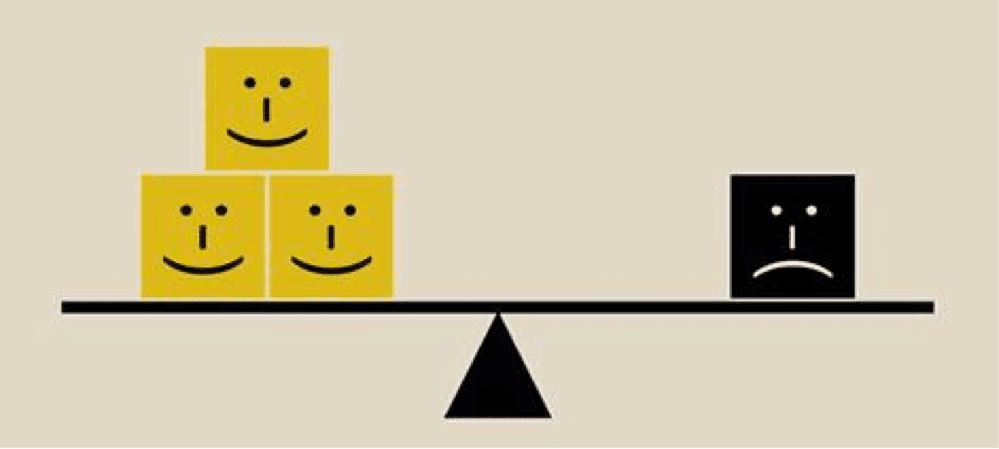SURVIVAL SKILLS
When you think of survival skills, what comes to mind? Some basic survival skills include things like building shelter, gathering food and water, and adjusting to changing climates. But did any of you think about attitude?
Yes – that’s right, attitude. It may come as a surprise but your attitude determines how successful you are in a survival situation. And today, we will learn about one specific attitude – negativity.
Negativity Bias is a scientific explanation for why people tend to hold onto what’s bad and hardly notice what’s good. Can you relate? As author and happiness expert, Dr. Rick Hanson explains: “Our brains are like Teflon for the good things and Velcro for the bad things.”
Why Do We Assume The Worst?
Negativity bias states that, for survival’s sake, it’s better to assume the worst.
It’s better to mistake a stick for a snake than vice versa. If you see a poisonous snake and mistake it for a stick and step on it, you’re bound to suffer the consequences. But, if you see a stick in the woods and think “snake!” you may be a little embarrassed but you’re fine. If it had actually been a snake, your negative assumption would have offered you plenty of time to react appropriately and escape danger.
The stick and the snake example show how negativity bias causes us to see bad things when, in reality, there isn’t anything bad at all. This example is also one of the instances where it’s simply safer to assume the worst.
Then, There’s The Fight or Flight Response…
This response to stress evolved eons ago to help save us from real-life dangers like bears and tigers. The problem with this response is that it’s being activated in our everyday lives where it isn’t necessary (i.e. when someone cuts you of in traffic or says an offensive comment).
The mismatch between the Fight or Flight response – how it was intended to be used and how it’s actually being used today – is wracking havoc on our health. We over react to little stressors in life and we do this because we are programmed to assume the worst and because we are habitually activating this highly intense fight or flight response.
Combatting These Human Tendencies
There are indeed situations where these innate human responses may help us escape danger. The key is understanding when these responses will help us and when these responses will hurt us. Use these 6 strategies below to counteract negativity and stress.
- Have a gratefulness journal.Writing about the things you are grateful for offsets the tendency to see things in a negative way.
- Celebrate!Whether that’s fist-bumping your fellow co-workers or going out for a dinner, don’t forget to acknowledge the big and little victories.
- Focus on the big picture.The moment something makes you feel stressed out, think about how important will this be tomorrow, next week or next year? If the answer is not very, or not at all, try to let it go right away.
- Get moving.Walking, running, working out, or just raising your heart rate a bit, for a minimum of 10 minutes at a time can clear out the little things that bother you.
- If you can’t flee; flow.Cardiologist Dr. Eliot, who coined the phrase “don’t sweat the small stuff”, actually had more to say. The original adage goes like this: “Don’t Sweat the Small Stuff; It’s all small stuff. And if you can’t flee from stress learn to flow with it.”
- Forgive.Holding a grudge is like taking poison every day while hoping someone else is going to die. That’s why you are the one who benefits every time you genuinely forgive someone who has hurt you.

